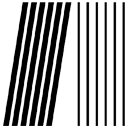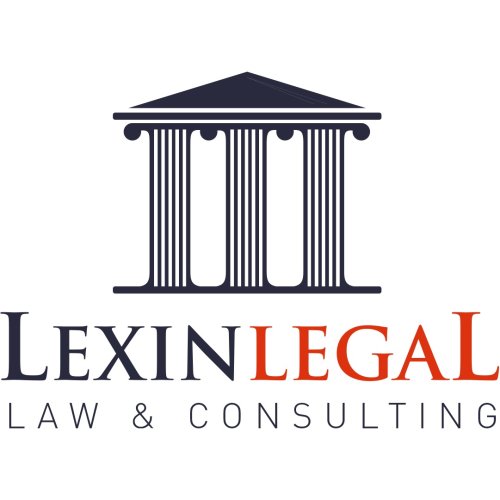Best Advertising and Marketing Lawyers in Turkey
Share your needs with us, get contacted by law firms.
Free. Takes 2 min.
Or refine your search by selecting a city:
List of the best lawyers in Turkey
About Advertising and Marketing Law in Turkey
Advertising and Marketing Law in Turkey is a dynamic field that encompasses numerous regulations aimed at promoting fair competition and protecting consumers. These laws are crucial as they define how businesses can promote their products and services, ensuring that marketing practices do not mislead or deceive consumers. Turkish advertising regulations are influenced by both national legislation and international standards, reflecting the country's commitment to maintaining ethical marketing practices. The main body of law governing this area is the Turkish Consumer Protection Law, accompanied by specific advertising regulations overseen by various governmental agencies.
Why You May Need a Lawyer
There are several common situations in Advertising and Marketing where legal assistance may be required:
- Compliance Issues: Ensuring that advertising campaigns comply with local and international laws to avoid fines and penalties.
- Intellectual Property Rights: Protecting trademarks, copyrights, and ensuring that marketing materials do not infringe on others' intellectual property.
- Consumer Complaints: Handling disputes or claims brought by consumers regarding misleading advertisements or unfair practices.
- Contracts and Agreements: Drafting and reviewing advertising agreements and sponsorship deals to ensure legally binding terms.
- Data Protection: Navigating the complex issues surrounding personal data usage in marketing under privacy laws such as the Personal Data Protection Law in Turkey.
Local Laws Overview
Key aspects of local laws in Turkey that are particularly relevant to Advertising and Marketing include:
- Consumer Protection Law: This law ensures that advertising practices protect consumer rights and prohibit misleading or false advertising.
- Regulation on Commercial Advertising and Unfair Commercial Practices: It provides detailed guidelines on acceptable advertising practices and defines unfair practices.
- Intellectual Property Law: Governs the protection of trademarks and copyrights within advertising content.
- Personal Data Protection Law (KVKK): Regulates the processing of personal data in marketing activities, aligning with GDPR standards.
- Radio and Television Supreme Council (RTÜK) Regulations: Oversees broadcast advertising, ensuring compliance with content and timing restrictions.
Frequently Asked Questions
1. What is considered false advertising under Turkish law?
False advertising is defined as any advertisement that deceives or is likely to deceive the consumer about a product or service, leading to unfair competition or harm to consumers.
2. Are there specific advertising restrictions for certain products?
Yes, Turkey imposes stricter advertising rules on products like tobacco, alcohol, and pharmaceuticals to protect public health and safety.
3. How does Turkey's law protect children from advertising?
The law prohibits advertising that exploits the inexperience and credulity of children, protecting them from misleading and aggressive marketing tactics.
4. What should I do if my advertisement has been unfairly removed by RTÜK?
You can appeal to the Radio and Television Supreme Council or engage legal counsel to contest the decision and seek reinstatement.
5. Is influencer marketing regulated in Turkey?
Yes, influencer marketing is subject to the same advertising regulations, requiring transparency and disclosure of paid partnerships.
6. How can I protect my brand in advertising campaigns?
Register your trademarks and ensure all promotional materials comply with intellectual property laws to safeguard your brand.
7. What are the penalties for non-compliance with advertising regulations?
Penalties can include fines, removal of ads, and cessation of advertising campaigns, depending on the severity of the non-compliance.
8. Can I use comparative advertising in Turkey?
Comparative advertising is permitted, provided it is truthful, does not disparage the competition, and objectively compares similar products.
9. Are there rules for digital and social media advertising?
Yes, digital advertising must comply with consumer protection and personal data laws, including accurate labeling of sponsored content.
10. How do I ensure compliance with privacy laws in marketing?
By seeking legal advice and implementing data protection measures to align with the Personal Data Protection Law (KVKK).
Additional Resources
For further information and resources, consider consulting:
- The Turkish Ministry of Trade's Consumer Protection Directorate for consumer rights and regulations.
- The Radio and Television Supreme Council (RTÜK) for broadcast advertising standards.
- Turkish Patent and Trademark Office for intellectual property protection.
- The Personal Data Protection Authority for guidance on data protection compliance.
Next Steps
If you need legal assistance in Advertising and Marketing, consider the following steps:
- Identify the specific legal issue or compliance requirement affecting your business.
- Research and reach out to lawyers who specialize in Advertising and Marketing Law in Turkey.
- Prepare relevant documents and details about your case to facilitate an informed discussion with your lawyer.
- Schedule a consultation to explore your legal options and develop a strategy tailored to your needs.
Seeking professional legal advice will help ensure your advertising strategies align with Turkish laws and are protected against potential legal challenges.
Lawzana helps you find the best lawyers and law firms in Turkey through a curated and pre-screened list of qualified legal professionals. Our platform offers rankings and detailed profiles of attorneys and law firms, allowing you to compare based on practice areas, including Advertising and Marketing, experience, and client feedback.
Each profile includes a description of the firm's areas of practice, client reviews, team members and partners, year of establishment, spoken languages, office locations, contact information, social media presence, and any published articles or resources. Most firms on our platform speak English and are experienced in both local and international legal matters.
Get a quote from top-rated law firms in Turkey — quickly, securely, and without unnecessary hassle.
Disclaimer:
The information provided on this page is for general informational purposes only and does not constitute legal advice. While we strive to ensure the accuracy and relevance of the content, legal information may change over time, and interpretations of the law can vary. You should always consult with a qualified legal professional for advice specific to your situation.
We disclaim all liability for actions taken or not taken based on the content of this page. If you believe any information is incorrect or outdated, please contact us, and we will review and update it where appropriate.
Browse advertising and marketing law firms by city in Turkey
Refine your search by selecting a city.















